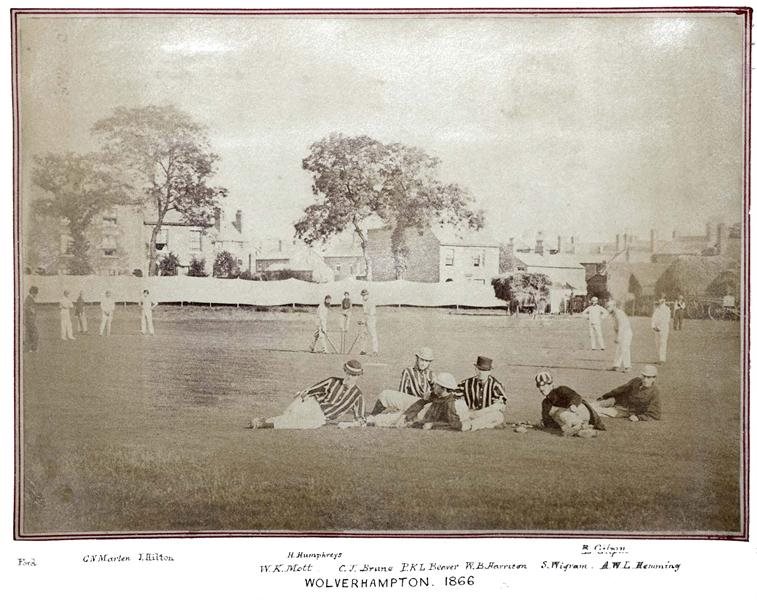
A potted history of the Incogniti Cricket Club
On the 15 February 1912 some 300 cricketers gathered at the Hotel Russell, London for a celebratory dinner. This was the jubilee of the Incogniti Cricket Club and the date of the first Committee meeting 50 years previously. But there was another cause for celebration: the Ashes had been regained in Australia two days previously. On that day in 1912 the oh-so-famous Urn was the personal possession of a member of the club (they were bequeathed to the MCC after his death in 1927) and the Ashes, a concept born of a mock obituary of English cricket, had been won for England on two occasions by a major contribution from two members of the club. In its 150 year history there have been four Incogs who have captained England and eight or more Test players.
In Incogniti’s first season, the year 1861, eight matches were played on a variety of grounds, starting at Lord’s on 25 May v the X.Y.Z. It could have been the beginning and the end of the X.Y.Z. – they never reappeared in the amazingly complete and continuous record of the Incogniti – but Incogniti was to prosper and flourish. Tufnell Park was chosen as the home ground at that first Committee meeting, but after a week’s tour to the Midlands in 1863 Incogniti became truly wandering, abandoning Tufnell Park the following year.
How truly great and wandering the club was to become is epitomised by the fact that both captains in the first Test series between England and New Zealand, played in New Zealand in 1930, were Incogs who had played together on the Incogniti Tour to America in 1924. And New Zealand had been put on the international cricket map by an Incog who had toured there, captaining a Fijian team prior to that Jubilee dinner. Two stalwart Incogs had played in opposing sides in an earlier Test series: 1905/6 England v South Africa.
An Incog forced the making of a new Law – the declaration. An Incog forced a change to the follow on Law. Two Incogs were heavily involved in the upgrading of the lbw Law. An Incog was largely responsible for acquisition of the southern end of the Nursery Ground at Lord’s, when the whole of the ground was under threat from the building of a railway line. An Incog invented that deceitful ball, the googly.
Incogniti has made its presence felt all round the world and over Europe with tours to Australia, South Africa, America, Canada, Goa, Singapore, Denmark, Holland, Malta, Cyprus and Gibraltar, and within the British Isles to Eire, Northern Ireland, Scotland, Wales, the Channel Islands and the Isle of Wight. There have been Incogniti matches in nearly every county of England and even in Kenya.
The magic facts about the club, the sources of pride, have been that it is the third oldest wandering club and that it played its first game at Lord’s. The first fact is false, as carved in wood on a plaque commemorating the International Millennium Cricket Festival for Wandering Clubs, Oxford 2000, but definitely debatable: this placed Incogniti as the fifth. The second fact is of little consequence since Lord’s was in an appalling state at the time: anyone could play there for one shilling, inclusive of stumps, bat and ball.
Maybe it is harder to remember all of the above facts but they are surely far more worth boasting about! Back in the early years of the club, the initials I.C.C. were used. Obviously they are not used today, in deference to a far more powerful organisation, but the initials had been taken from a club as meritorious in its own way. There has been un recognisable change in the social landscape since the inception of the Incogniti and yet its essential character, the desire to play a fair and honourable game to a sporting conclusion, has not. Incogs remain passionate about the “proper” way of playing, about the joy derived from playing for a finish, and from playing with the opposition rather than against them. It is the preservation of this ethos that is now drawing cricketers, tired of the lack of these very qualities in league cricket, into the ranks of the Great Unknown.
A book written by Claire Whickman is available for purchase. See details see The Incogniti History